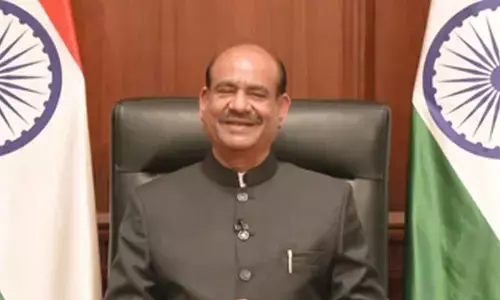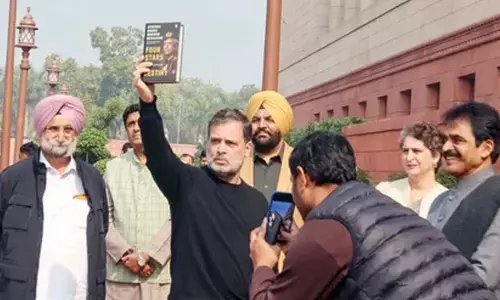MyVoice: Views of our readers 14th March 2024

Views of our readers
Religious identity guides CAA rules
The motives for the Modi government notifying CAA rules at this point in time (just before the general election) are not far to seek; they are to divert the people’s attention away from the economic situation and issues like unemployment, inflation, electoral bonds and MSP for crops and to polarize the voters along religious lines to the extent possible. The law in question grants citizenship and denies citizenship on the basis of religion. It explicitly discriminates against the Muslims by keeping them out of its ambit. If equality of religions is a constitutional principle, no amount of obfuscation can justify the exclusion of Muslims from eligibility for citizenship. There is a real possibility of Muslims being singled out, dubbed ‘infiltrators’, as against ‘refugees’ and ‘migrants’, and deported or put in detention centres. The flip side (and major flaw) of the incendiary law is that it gives precedence to ‘religious identity’ over ‘human identity’. The exclusion of the Tamils from Sri Lanka, the Rohingyas from Myanmar, and Ahmadiyyas from Pakistan and Hazaras from Afghanistan from eligibility for citizenship in contrast to the inclusion of Hindus, Sikhs, Buddhists, Jains, Parsis and Christians from Bangladesh, Pakistan and Afghanistan for the ‘benefit’ is telling. We are a secular democracy to grant citizenship or deny it or take it away on the basis of religion. For us humanity should be the religion and the Constitution the Holy Book. The CAA, predicated on the idea that citizenship can be determined in terms of religious identity, goes to stratify the society and engender social strife and is indefensible. As a secular and pluralist democracy, we will do better without a religion-based citizenship law; we must throw it where it belongs – the dust bin.
G.David Milton, Maruthancode, Tamil Nadu
II
Apropos of captioned report ( March 13).Although controversial Citizenship (Amendmend) Act (CAA ) was enacted to provide Indian citizenship to persecuted non-Muslims migrated into India from Muslim countries in the neighbourhood. Since Muslim migrants will not happen herein, they were specifically precluded from the Act which is being politically and vigorously opposed by opposition to woo minority vote-bank eyeing next Lok Sabha polls. As highlighted by Union Home Minister, although no Indian will lose citizenship, opposition is saying that minorities of the country will lose their citizenship with enactment of CAA. Whole country keenly watch final verdict of apex court in suit challenging CAA.
B Veerakumaran Thampi, Pattom, Kerala
III
By paving way for political agitations again, rules under controversial CAA 2019 came into force now. Right to rule over state can be used constitutionally only subject to law passed by Parliament. For same, central government is empowered to issue directions to state. On account of legal position that sovereignt relating to citizenship vests with Parliament, and also that no one lose citizenship, making CAA invalid is laborious task.
B Veerakumar Thampi, Kerala
Strengthen ‘nari shakthi’ to hit state hard
The Telangana CM, Revanth Reddy, is reported to have said that his government would transform one crore women into ‘crorepathis’ in the next five years (Mar, 13). His aim to strengthen the ‘nari shakthi’ is welcome. How far it is possible in practical is to be seen when the state is already reeling under debt. Already the six guarantees made by the Congress is a heavy burden to the state exchequer and with this promise, I hope that the state does not turn bankrupt.
N R Ramachandran, Chennai








